Abstract
The biologist Jacques Loeb is an important figure in the history of behavior analysis. Between 1890 and 1915, Loeb championed an approach to experimental biology that would later exert substantial influence on the work of B. F. Skinner and behavior analysis. This paper examines some of these sources of influence, with a particular emphasis on Loeb's firm commitment to prediction and control as fundamental goals of an experimental life science, and how these goals were extended and broadened by Skinner. Both Loeb and Skinner adopted a pragmatic approach to science that put practical control of their subject matter above formal theory testing, both based their research programs on analyses of reproducible units involving the intact organism, and both strongly endorsed technological applications of basic laboratory science. For Loeb, but especially for Skinner, control came to mean something more than mere experimental or technological control for its own sake; it became synonomous with scientific understanding. This view follows from (a) the successful working model of science Loeb and Skinner inherited from Ernst Mach, in which science is viewed as human social activity, and effective practical action is taken as the basis of scientific knowledge, and (b) Skinner's analysis of scientific activity, situated in the world of direct experience and related to practices arranged by scientific verbal communities. From this perspective, prediction and control are human acts that arise from and are maintained by social circumstances in which such acts meet with effective consequences.
Keywords: prediction and control, historical analysis, epistemology, Jacques Loeb, B. F. Skinner
Full text
PDF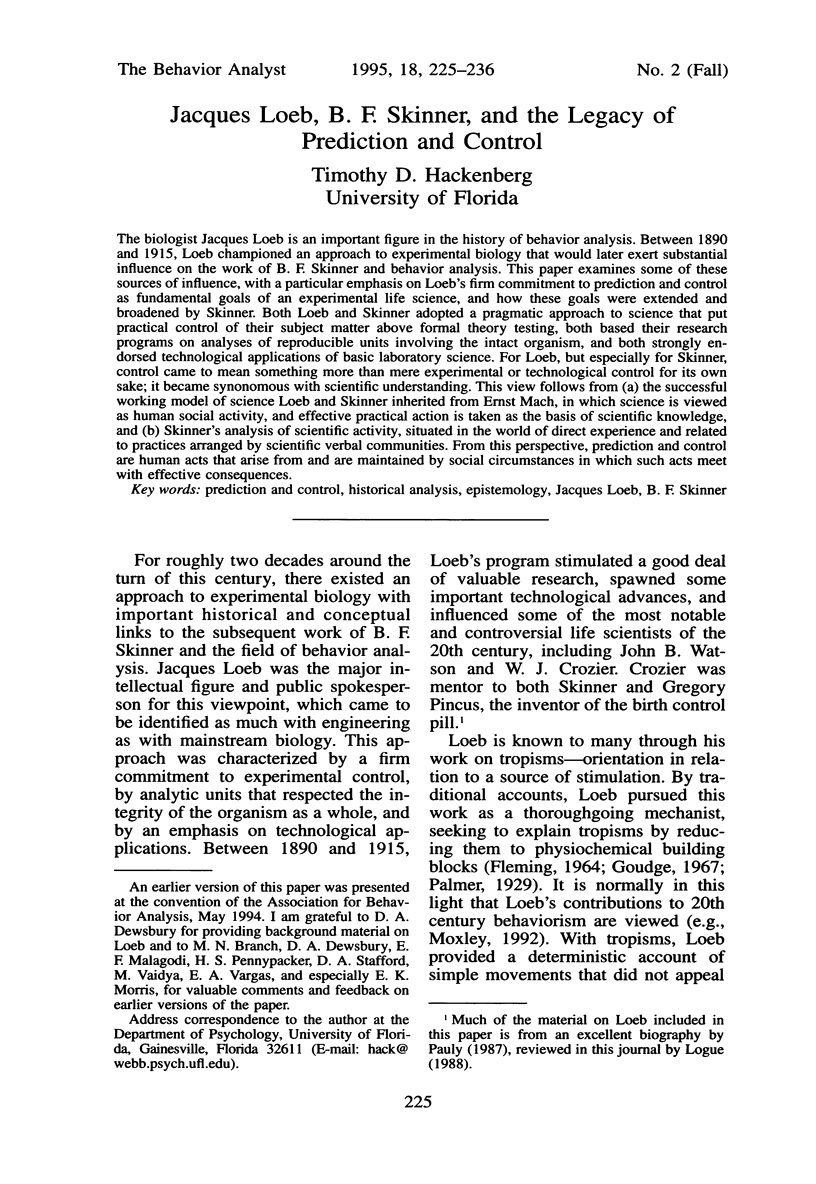
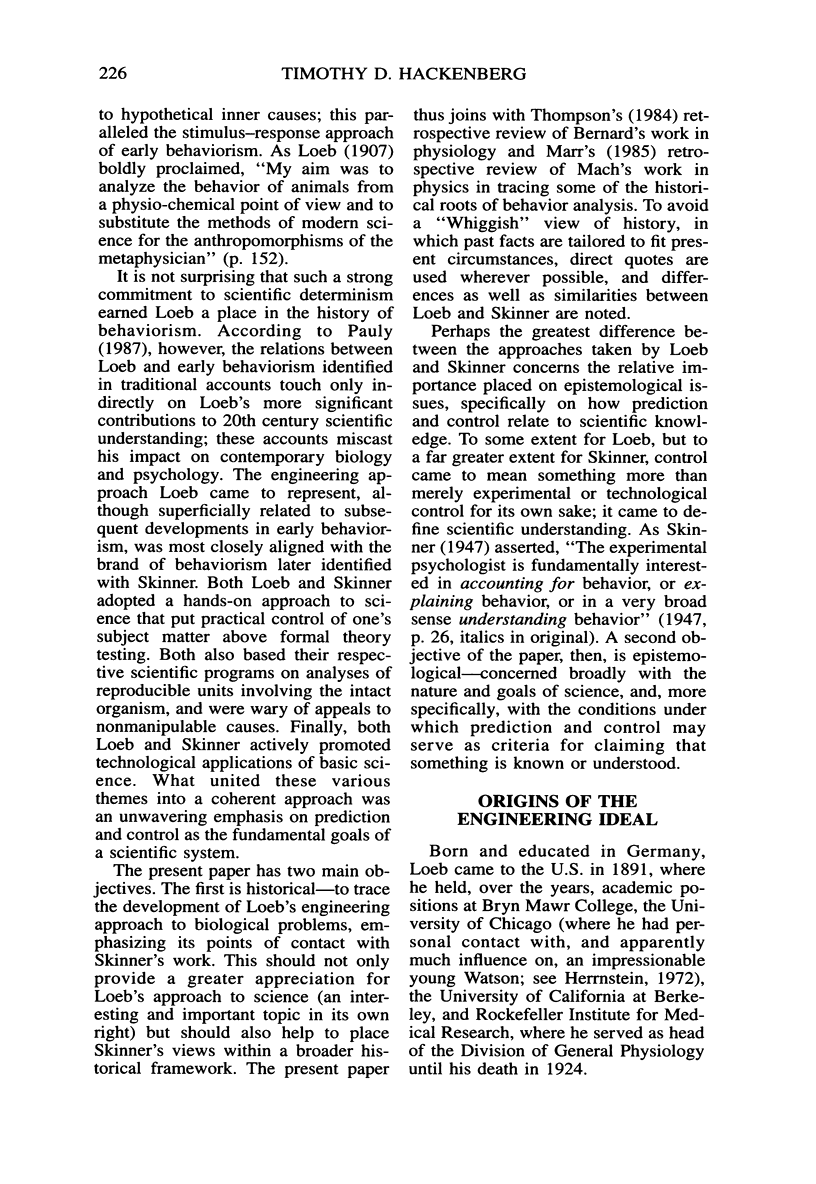
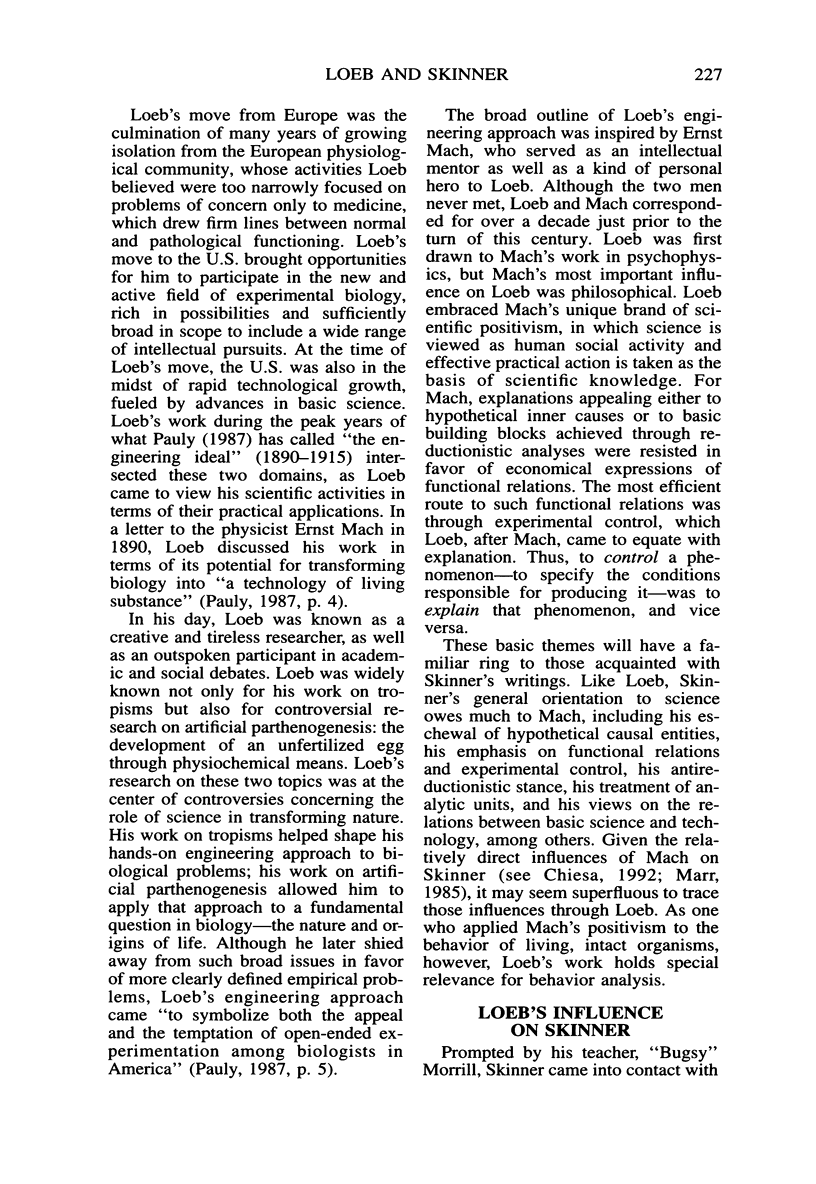
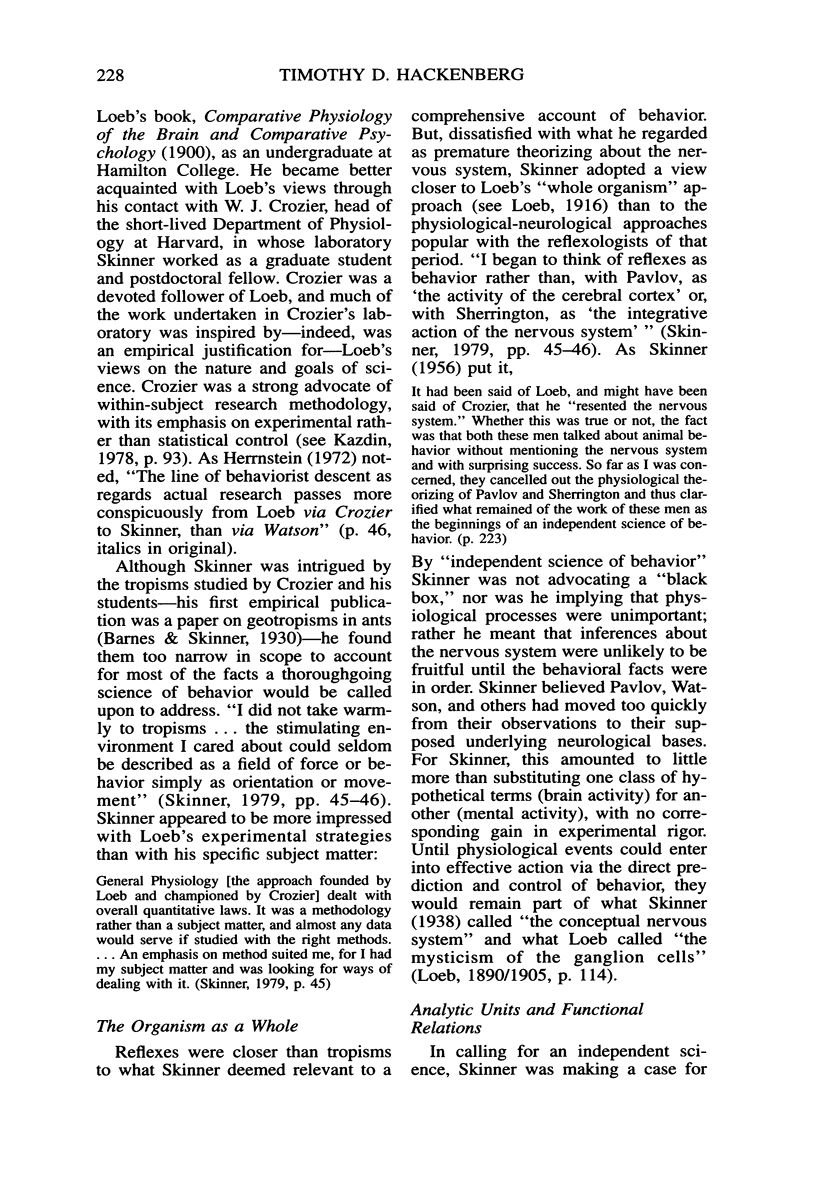
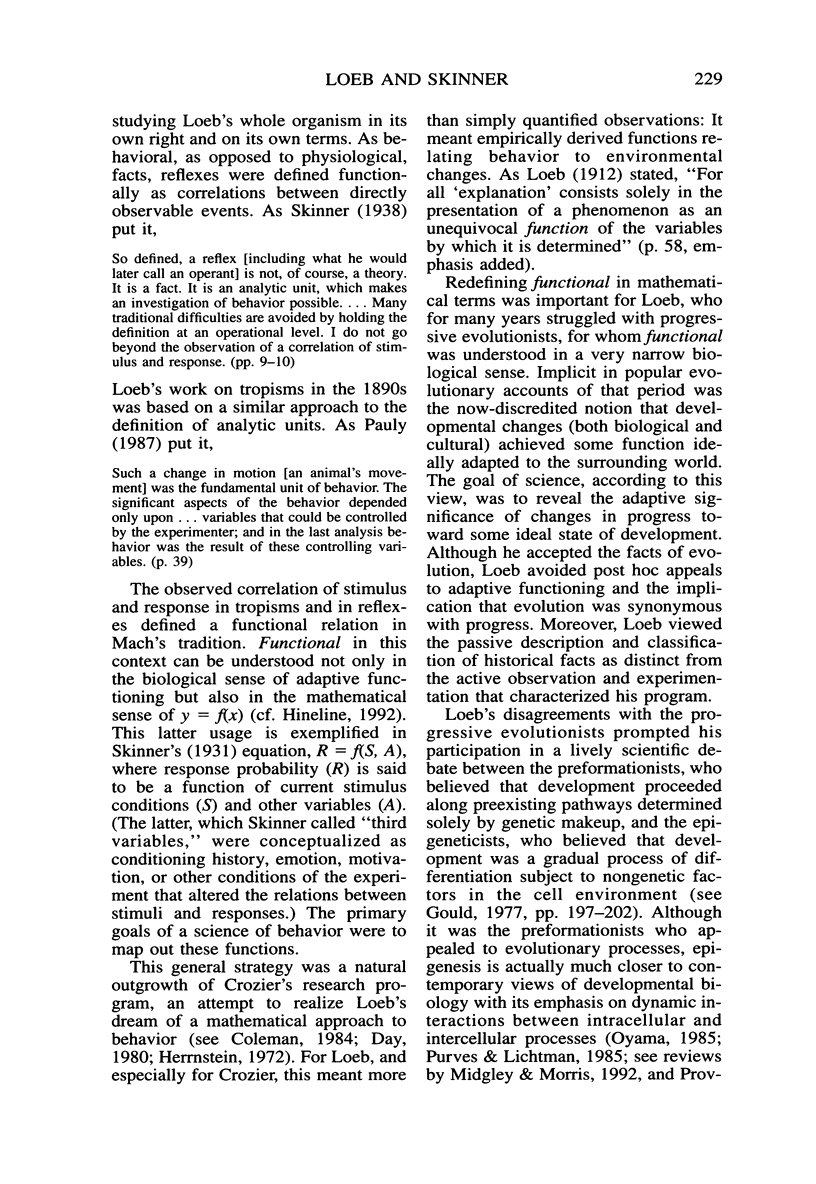
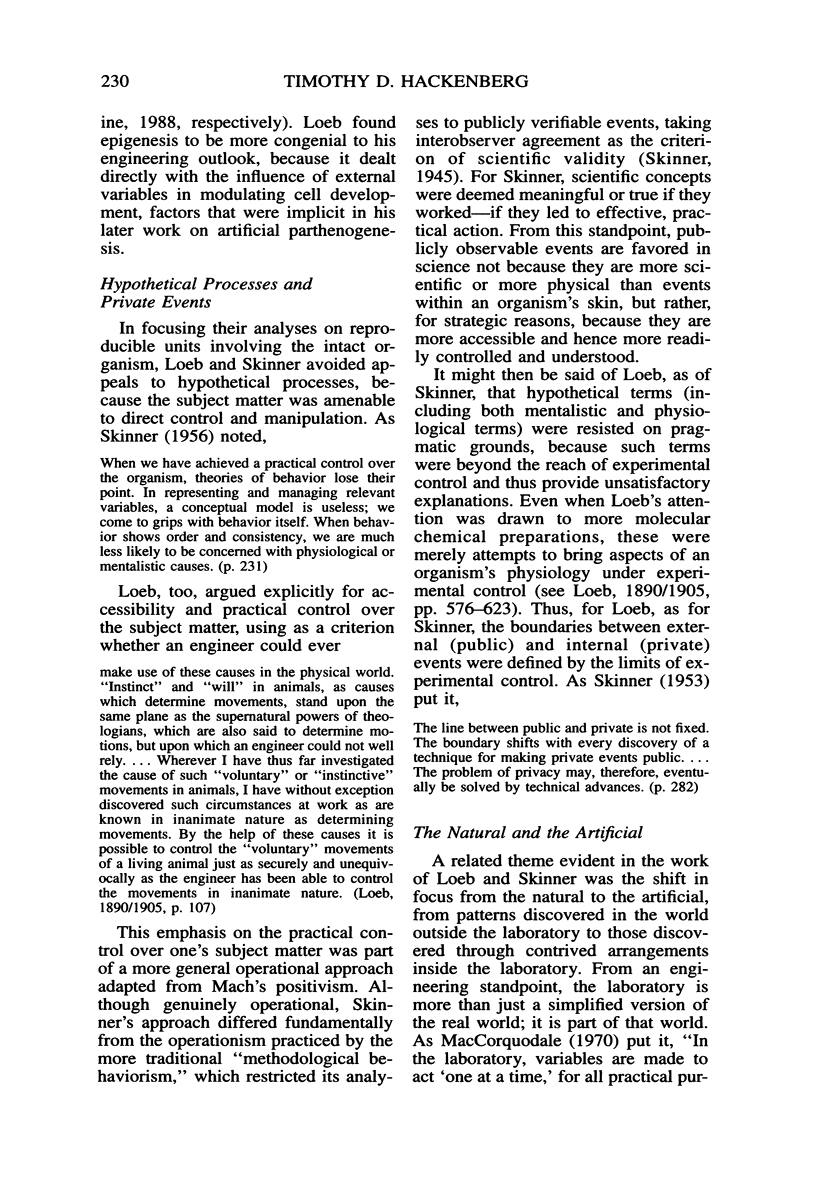
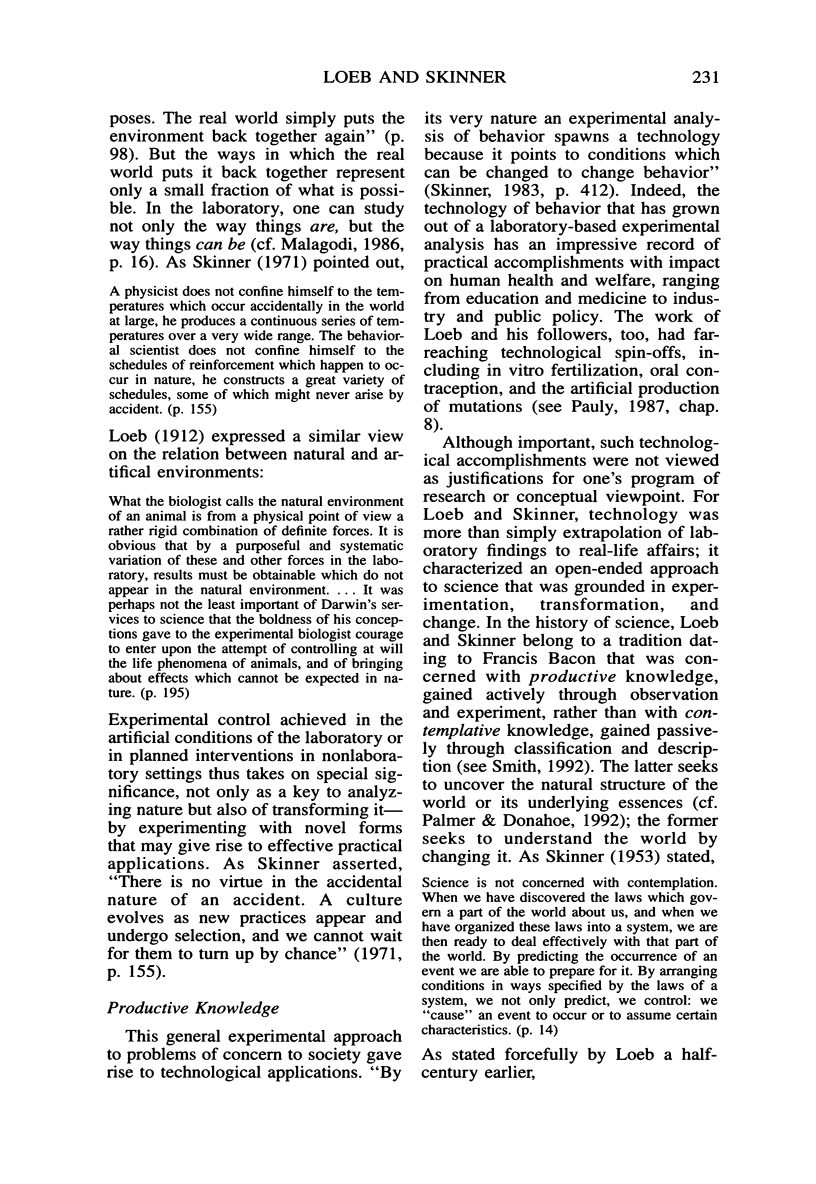
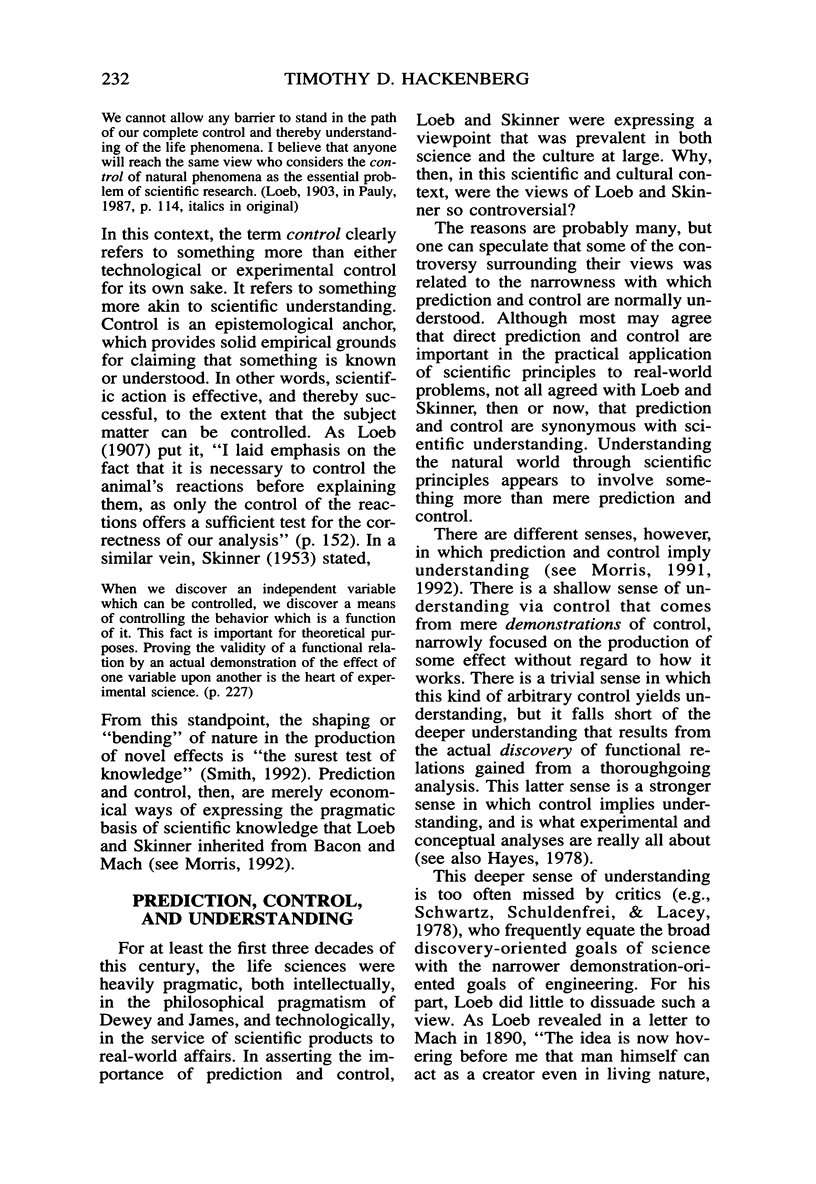
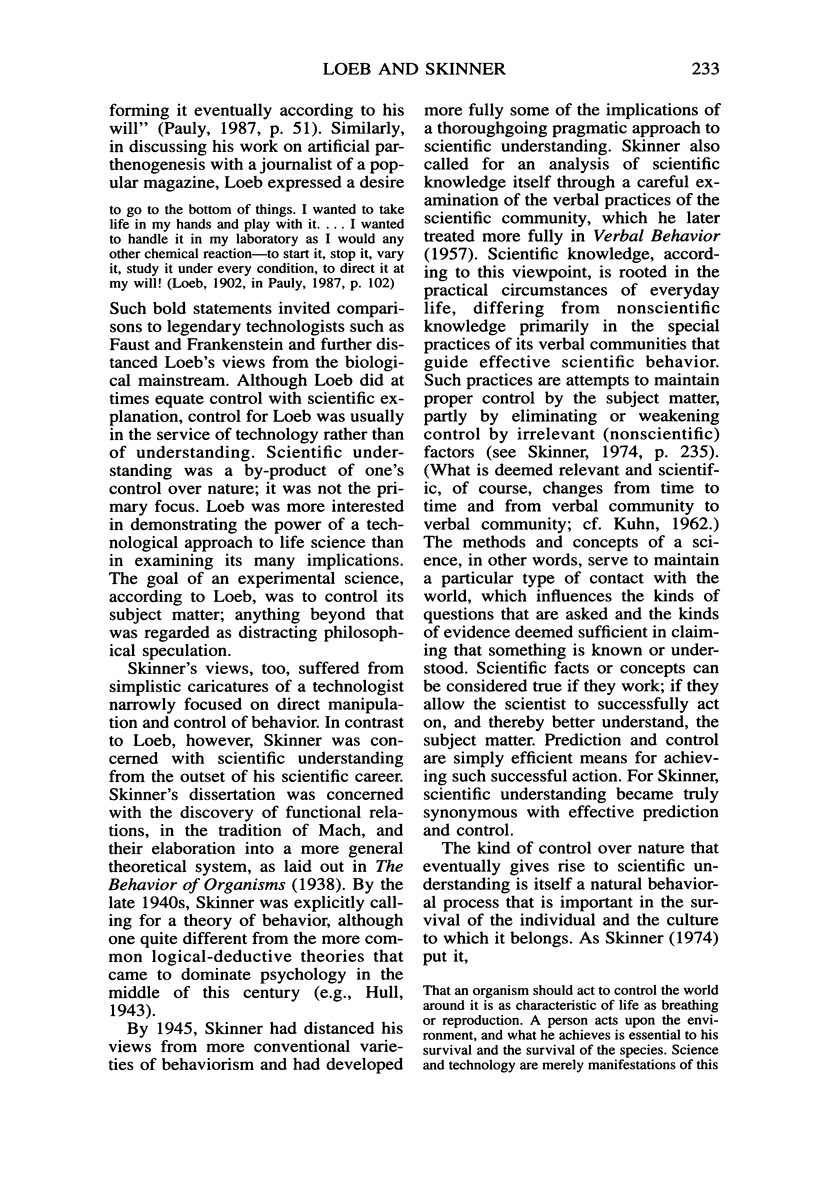
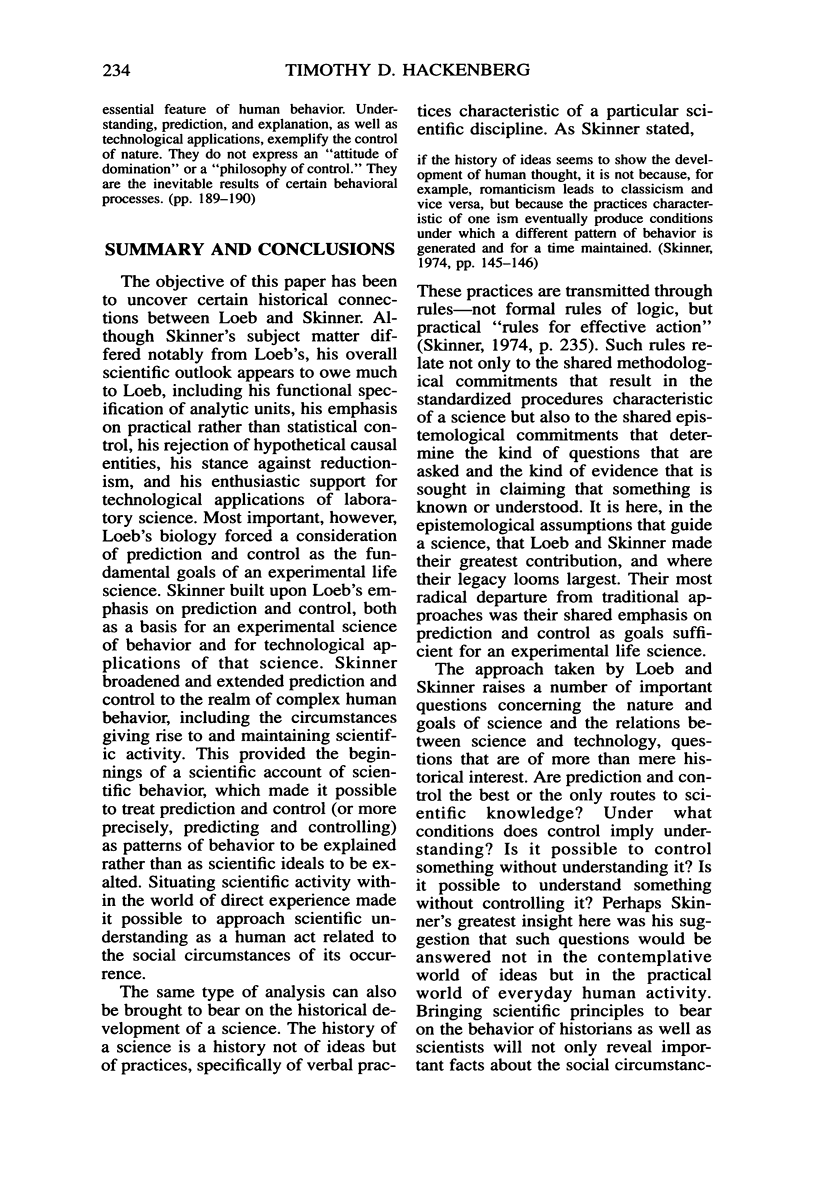
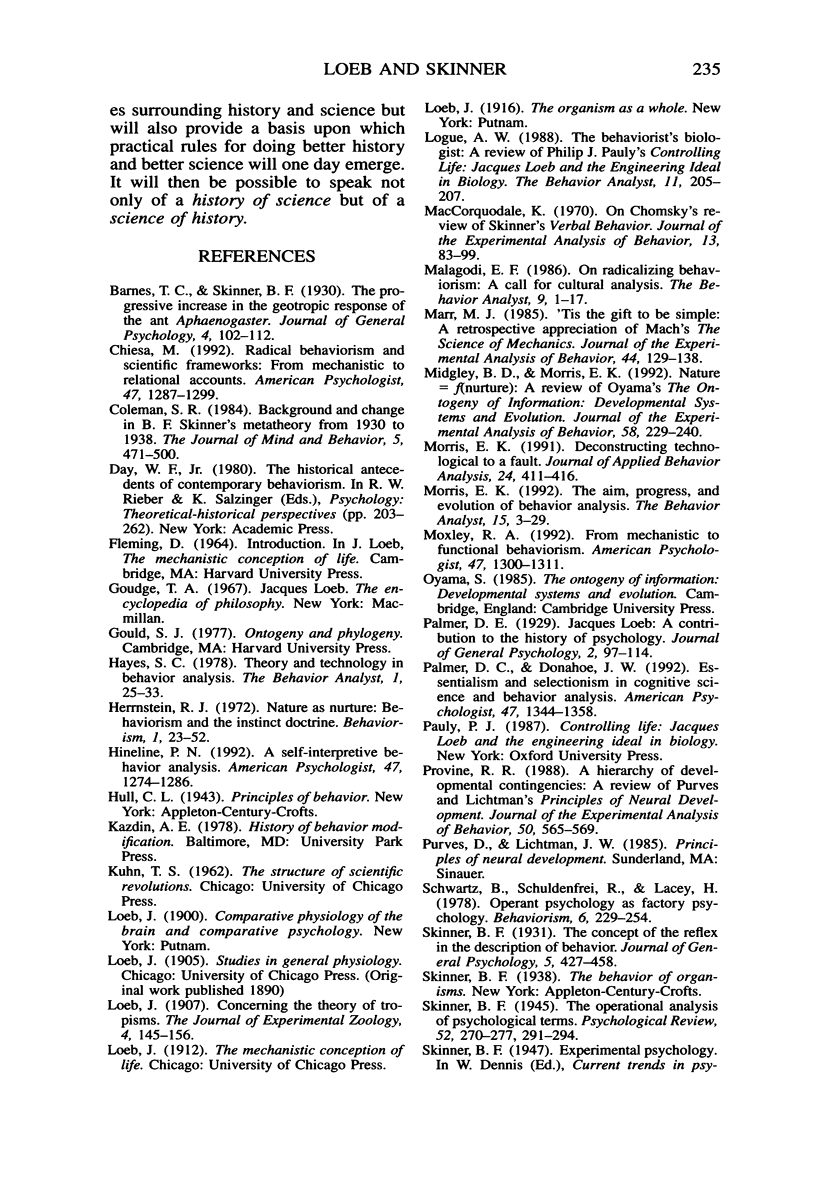
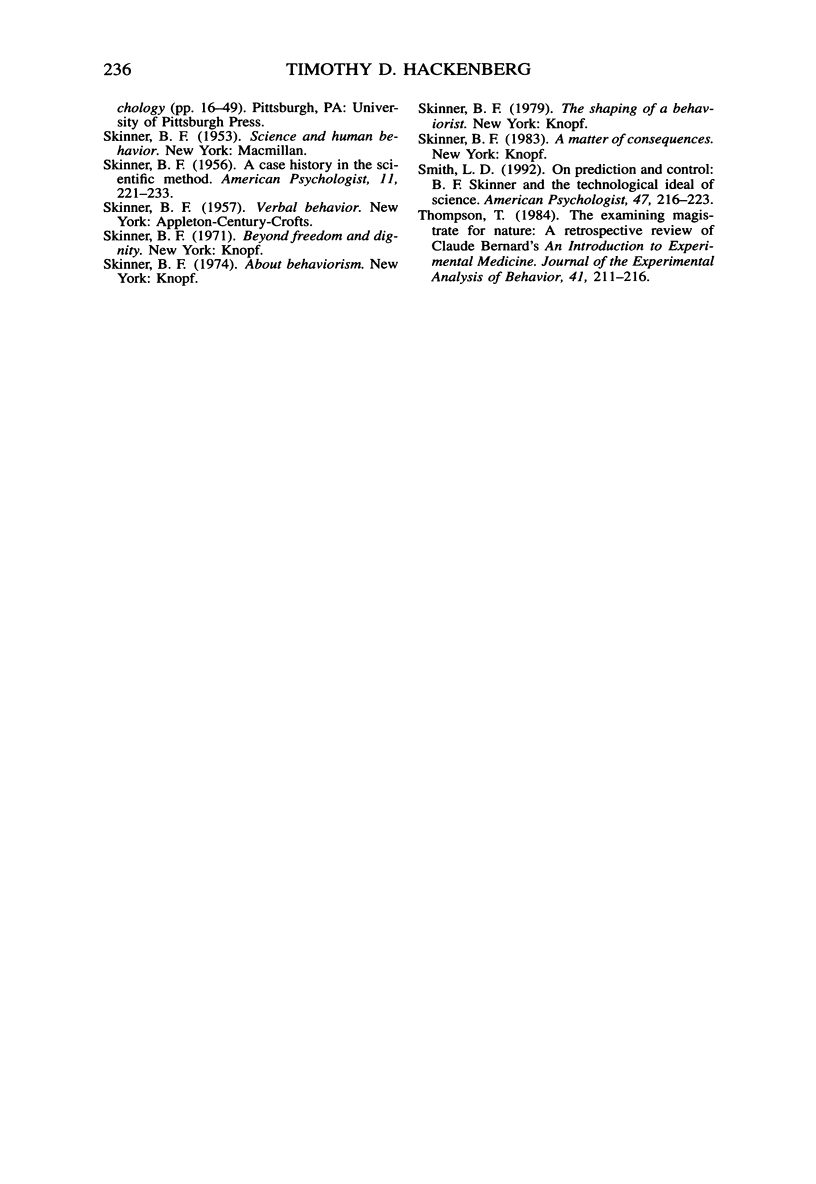
Selected References
These references are in PubMed. This may not be the complete list of references from this article.
- Chiesa M. Radical behaviorism and scientific frameworks. From mechanistic to relational accounts. Am Psychol. 1992 Nov;47(11):1287–1299. doi: 10.1037//0003-066x.47.11.1287. [DOI] [PubMed] [Google Scholar]
- Hayes S. C. Theory and technology in behavior analysis. Behav Anal. 1978 Spring;1(1):25–33. doi: 10.1007/BF03392370. [DOI] [PMC free article] [PubMed] [Google Scholar]
- Hineline P. N. A self-interpretive behavior analysis. Am Psychol. 1992 Nov;47(11):1274–1286. doi: 10.1037//0003-066x.47.11.1274. [DOI] [PubMed] [Google Scholar]
- Malagodi E. F. On radicalizing behaviorism: A call for cultural analysis. Behav Anal. 1986 Spring;9(1):1–17. doi: 10.1007/BF03391925. [DOI] [PMC free article] [PubMed] [Google Scholar]
- Morris E. K. ABA presidential address: the aim, progress, and evolution of behavior analysis. Behav Anal. 1992 Spring;15(1):3–29. doi: 10.1007/BF03392582. [DOI] [PMC free article] [PubMed] [Google Scholar]
- Morris E. K. Deconstructing "technological to a fault". J Appl Behav Anal. 1991 Fall;24(3):411–416. doi: 10.1901/jaba.1991.24-411. [DOI] [PMC free article] [PubMed] [Google Scholar]
- Moxley R. A. From mechanistic to functional behaviorism. Am Psychol. 1992 Nov;47(11):1300–1311. doi: 10.1037//0003-066x.47.11.1300. [DOI] [PubMed] [Google Scholar]
- doi: 10.1901/jeab.1992.58-229. [DOI] [PMC free article] [Google Scholar]
- doi: 10.1901/jeab.1970.13-83. [DOI] [PMC free article] [Google Scholar]
- doi: 10.1901/jeab.1988.50-565. [DOI] [PMC free article] [Google Scholar]
- doi: 10.1901/jeab.1984.41-211. [DOI] [PMC free article] [Google Scholar]
- doi: 10.1901/jeab.1985.44-129. [DOI] [PMC free article] [Google Scholar]
- Palmer D. C., Donahoe J. W. Essentialism and selectionism in cognitive science and behavior analysis. Am Psychol. 1992 Nov;47(11):1344–1358. doi: 10.1037//0003-066x.47.11.1344. [DOI] [PubMed] [Google Scholar]


